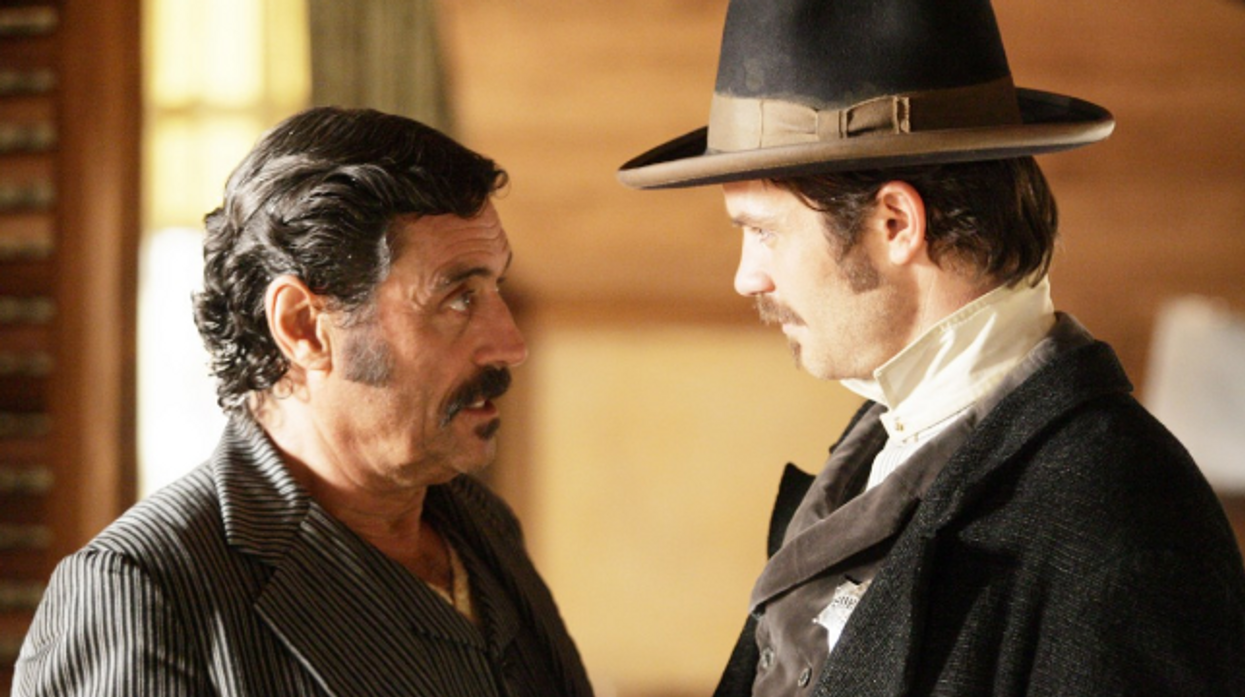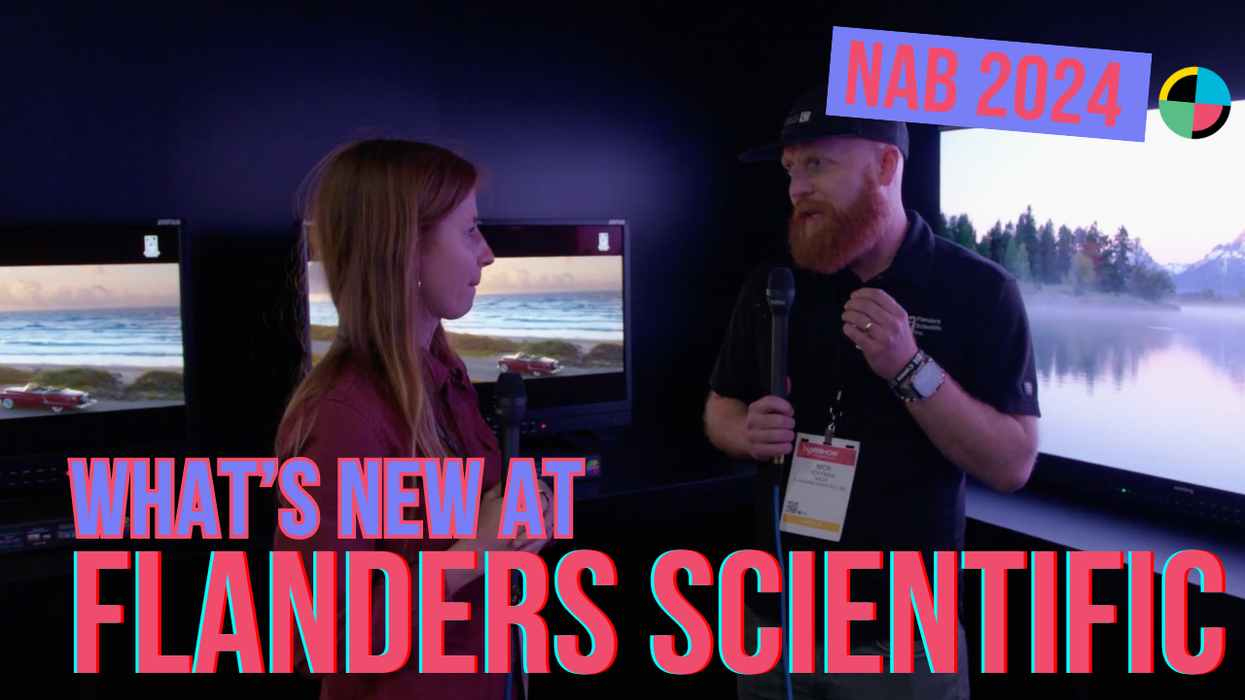'Deadwood' Movie Officially Begins; Legend Still Becomes Fact
Over 10 years of speculation and now the Deadwood movie is in production. Why does HBO's 3 Season anti-western continue to fascinate and will it translate to the big screen?

Maybe everyone has westerns on the brain, Red Dead Redemption 2 is raking in record-breaking dough, and Westworld is coming off another successful season. Just like those two properties, Deadwood is a kind of anti-western western. One that focuses on a darker side of the mythology. Will it still work for the feature?
Is it time for another shift in tone?
Maybe all the way back to some of our more seemingly innocent western roots?
Maybe not quite.
We ask those questions and take a look back at what has made Deadwood , and the western, endure.
The Deadwood Movie And Darker Westerns
According to Deadline, the Deadwood movie will feature many of the familiar cast members, with one announced newcomer. Beyond that, not much is known. What can we deduce about it, and expect, given what we know about westerns and the series itself?
Deadwood always prided itself on being something of a subversion of the western motif. It's an anti-western. Or at one time what was called "an end of the west western."
This genetic strain of western has been with us arguably since The Wild Bunch and Butch Cassidy and The Sundance Kid rode into theaters in the late 1960's and subverted all expectations of the genre. And each new entry since seems to take us deeper into the darkness of our lionized past.
Different types of endings took over. (Spoiler alerts...)
Less riding off into the sunset.
More collapsing into a lifeless heap caked in blood and covered in dust.
There are no white hats worn in Deadwood. Not even by the "good guys". The world of David Milch's show is dark, muddy, bloody, and full of words you'd never hear cross John Wayne or Gary Cooper's lips.
Western novelist Larry McMurtry who's responsible for helping adapt Brokeback Mountain for the screen won a Pulitzer for his brilliant epic western novel Lonesome Dove. McMurtry approached that project as an attempt to demystify some of the western lore.
It didn't quite work out that way.
It rarely does.
Many know Lonesome Dove for the miniseries adaptation, which won 7 Emmys. It also spawned spinoff novels and sequels. Lesser known is that it was originally planned as a feature film McMurtry would write for Peter Bogdanovich, hot off his adaptation of McMurtry's classic Last Picture Show.
As often is the case the movie got stuck in development trouble, stars John Wayne, Jimmy Stewart, and Henry Fonda, all set to play the primary roles couldn't come together.
So McMurtry just wrote the book. And the rest is history.
No matter how hard writers try to debunk and demystify the west, they only ever seem to add to it. From Lonesome Dove to Deadwood.
The more things change... the more they stay the same.
Deadwood and Western Motifs
Despite the many surface differences, there are some big similarities between Deadwood and the classic western. For all it's Al Swearengen R-rated bluster, Deadwood is still about lawlessness, and a reluctant lawman bringing order to chaos.
Timothy Olyphant's Seth Bullock character comes to Deadwood to start a business. Not to be a lawman. He ain't about that life.
Until he is pressed into service, in classic western fashion.
Suddenly Bullock (good guy) and Swearengen (bad guy) are going mano y mano in the streets.
Just like every western.
Throughout its three seasons, Deadwood brought in other villains, created gray areas, even saw bad guy and good guy unite against common foes.
Deadwood is based on "previously published material". There are multiple books about Deadwood covering many of these same characters. Some of them were real people. Deadwood is still a real place.
Did it all go down just as the show, or stories, suggest?
Unlikely.
But that's the fun of the old west.
There might be 200 books about Wyatt Earp. They all tend to claim some ownership of truth, and they all have different takes on the legend and his legendary deeds.
When it comes to a Deadwood feature film, the ability to explore a gray area and the overall chaos of the west may be difficult. Time to service all those rich ancillary characters may be a struggle to find.
Focusing even more on the classic tropes seems the obvious, and likely, route.
And that isn't a bad thing.
Those western tropes flat out work.
But why?
Why Do We Love Western Movies So Much?
Some of the fascination with the Western started happening before the era of the 'old west' had even fully concluded. Buffalo Bill Cody, the subject of "dime novels" which were sort of like the era's comic books, became popular in the 1870s.
This transitioned into Wild West Shows.
Those were traveling acts, including animals, stunts, sharp shooting, rodeo events, and on it goes.
For reference, Billy The Kid died in 1881, that same year had the Gunfight at the OK corral. So the 'mythology' of the American West began even as the most mythologized events were playing out in real time.
That's one movie take on Tombstone and the famous gunfight. Here is another.
And another:
And there are tons more. Wyatt Earp, the star of this historic moment and a primary source of many of the lawman myths and stories, spent his later years in Hollywood advising on western movies.
He helped build his legend and the legend of the west.
But that still doesn't answer why we keep coming back to this.
One answer is that the idea of manifest destiny, our own expansion from sea to shining sea, is so core to American culture that stories of settling that wild west are ingrained in our national subconscious.
The western typically focuses on the building of a civilization out of nothing. Even as we grew away from villainous, fictional and racist takes on the Native American culture the genocide of which we presided over, we found new representations of the chaos and instability our settlers would have to conquer.
Deadwood is a show about a mining territory, and how all the figures attempt to carve a piece of civilization from that rough rock. Milch himself said Deadwood was about order and chaos. This falls in line with most westerns.
Want to get meta?
The movies, and myths, building up the legend of the west has been a subject of westerns all along as well. The famous quote "when the legend becomes fact, print the legend" comes 1962's western The Man Who Shot Liberty Valance. That was a long time ago for the genre to already be self-aware.
Why does all of this matter?
Because Deadwood didn't really subvert the genre that much. Nor does Red Dead Redemption 2. In the end, these stories are doing the same thing every western has done; they are romanticizing this bygone era of lawlessness when every man and woman had the freedoms and dangers that come with it.
This all still fascinates Americans to this day. If you want to tell stories here, a cursory understanding of our primary mythology can't hurt.
The Western in... Everything?
You'll often hear that Star Wars is less science-fiction and more western. Look at all the modern incarnations, even images from the newest "live-action series" and you'll get that western vibe. They're even calling it a western frontier type story on the outskirts of the galaxy.
Star Trek was initially pitched as 'Wagon Train in space'.
What are the comic book movies of today if not the modern manifestation of the dime store novel? Heroes clashing with villains. Justice vs. evil. Order vs. chaos.
Some of these tropes go even deeper into our past as humans. Arthurian legend. Epic of Gilgamesh. Joseph Campbell tying it all together to say "all our stories are really the same."
But deep down we crave stories like this. It can wear the clean pressed clothes and the white hat of John Wayne, or the worn dirty bloodied grab of Al Swearengen. In either case, we're watching the same story play out. One truly germane to our culture.
A story that never seems to get old.
Wrapping Up The Deadwood Movie and the Western
Once everyone has finished their play-through of the massive open world game Red Dead Redemption 2, the enthusiasm for the western may fade a bit and fall from the tip of everyone's tongue.
But the core of what the genre does for us regarding story will never fade.
It's ingrained in many of our genres, and in how we consume much of our media.
Think of the enthusiasm for The Walking Dead. With its prominent sheriff character of Rick, facing a lawless world, isn't it another western of sorts?
What about the explosion of countless "procedurals", which at their essence are stories about lawmen catching crooks. What is The Wire if not a modern American Western? Even the name for the show Law and Order feels like it was pulled out of a story about Wyatt Earp riding into town.
Because on some fundamental level, it is.
Ok. I'd better stop now before I turn everything into a western...
What's your favorite western? Or a favorite western inspired story?
Let us know in the comments!

 No Film School's coverage of
No Film School's coverage of 









